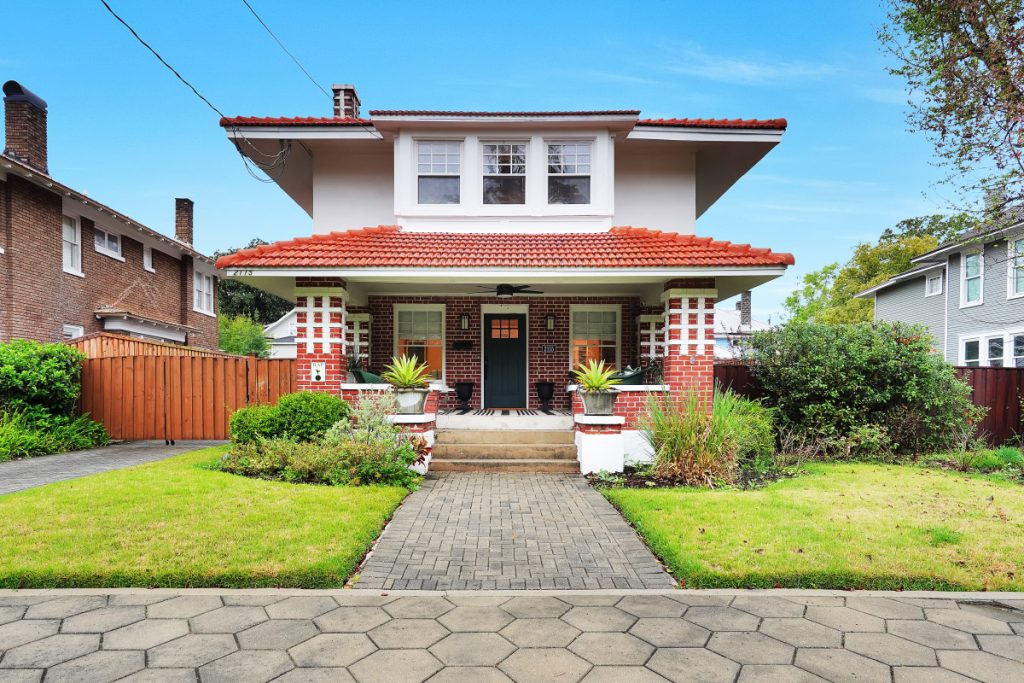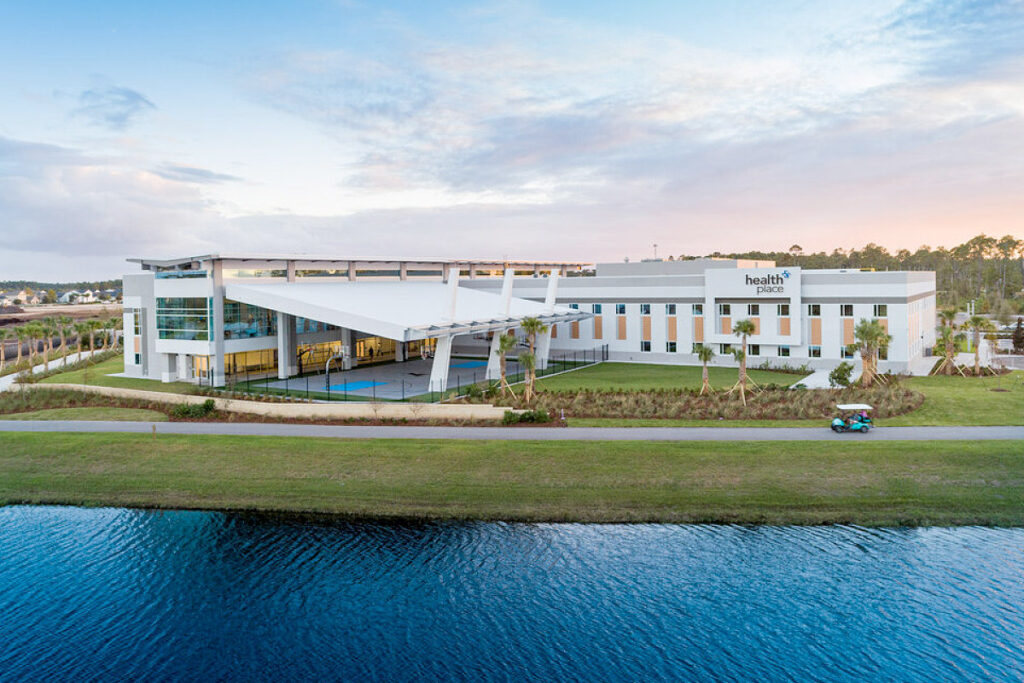Actuarial tables tell us that the day you turn 65, you have 20 years to live. Your happiness and quality of life will largely be determined by the life choices you make as you navigate your Golden Years … and your retirement home is a major one. This is one part of your destiny that you can control.
In a certain way, it is a new day. First, buying a retirement home in Florida is significantly different from buying a traditional family home, primarily because your needs, priorities, and financial situation have changed with retirement.
Furthermore, the home-buying process has evolved significantly over the past generation due to technological advancements, changing societal norms, and shifts in economic conditions. Here are some key changes:
What Has Changed
Internet and Technology: This is perhaps the most significant change. In the past, buyers relied heavily on real estate agents to find listings and arrange viewings. Today, online platforms provide access to multiple listing service (MLS) databases, allowing prospective buyers to search for homes, compare prices, view photos, and sometimes take virtual tours from the comfort of their own homes. Mobile apps and real estate websites have made the process of searching for a home much more accessible and convenient.
Real Estate Professionals: The role of real estate professionals has evolved to keep up with the times. With so much information available online, realtors are no longer gatekeepers of property information but are now consultants and negotiators. And the best agents will be knowledgeable about the communities that interest you.
Mortgage Pre-Approval: Getting pre-approved for a mortgage has become a more standard part of the home buying process. Pre-approval can make a buyer more attractive to sellers because it shows the buyer has the financial ability to purchase the home.
Home Inspections: While home inspections have been part of the home buying process for many years, their use has become more standardized and almost universally recommended. Some buyers even opt for specialized inspections, such as for mold or termites, to ensure they’re fully aware of potential issues before purchasing.
Closing Process: Digitalization has also influenced the closing process. E-closings, which allow for documents to be signed electronically, are becoming more common, making the process more efficient.
Financing Options: There are more mortgage options available now, tailored to different types of buyers. Government programs have evolved, and some assist people who might not qualify for traditional loans.
Increased Regulations: In response to the subprime mortgage crisis of 2007-2008, there have been increased regulations in lending practices, which are designed to protect consumers and ensure they understand the terms of their mortgages.
COVID-19 Pandemic: The pandemic has had a significant impact on the home buying process, with an increase in virtual home tours and remote closings. It’s also led to shifts in what buyers are looking for, with greater demand for homes with more space, home offices, and outdoor amenities.
Remember, while the process of buying a home has become more streamlined and accessible, it’s still a complex transaction that benefits from professional advice and careful consideration.

What You Should Consider
However much you think of it in terms of pleasure, the purchase of a retirement home requires as much planning and thought as you give to choosing a primary residence. You may feel you don’t have to be bound by the practical restraints of being near a good school or being close to work, but there are still some very important pragmatic factors to consider before you rush into a purchase.
Location: Location is always a key consideration, but for different reasons when it comes to retirement. You might want to be close to family or medical facilities or in a place where you’ve always dreamed of living. You’ll also want to consider the cost of living in the location you choose.
Lifestyle and Amenities: Consider your desired lifestyle and the amenities you would like in your retirement. Many retirees look for homes in communities that offer social activities and amenities tailored to seniors. Active adult communities, for example, provide opportunities for socializing, physical activity, and sometimes even organized trips and events. Others may provide more basic amenities or focus on a specific interest or lifestyle, such as beachfront living or an eco-friendly environment.
Healthcare: Access to quality healthcare is essential for retirees. Research nearby medical facilities, including hospitals, specialists, and urgent care centers. Look for communities that are close to healthcare providers or offer on-site medical services.
Maintenance: As you age, home maintenance can become more challenging. Some retirees opt for condominiums, townhouses, or communities with homeowner associations that take care of maintenance.
If you plan on being responsible for your own upkeep, ask yourself if you want to spend your “relaxing’’ retirement doing repairs and maintenance? Even if you can do them now, will this be an issue in a few years? If it is not your cup of tea, include the cost of hiring someone in the price of owning the place.
Transportation: Consider the availability of public transportation or community transportation services, especially if you plan to reduce or eliminate driving as you age.
Accessibility and Layout: A retirement home should ideally be designed to accommodate you as you age. This might include considerations like a single-story layout to avoid stairs, accessibility features like handrails in bathrooms, or proximity to services and amenities. Can you grow old in this house? See Chapter 7, “Aging in Place” for ideas and guidelines.
Resale Value: While it might seem far off, it’s still important to consider the resale value of your retirement home. Look for homes in desirable locations and communities that are likely to be maintained or appreciate in value. Consider improvements you may have to make to Age in Place. This could be a key factor if your health changes and you need to sell the house or if you want to leave the property to your heirs.
Taxes: Florida does not have a state income tax, which is beneficial for retirees. However, be sure to research property taxes and any other local taxes that may impact on your budget.
Legal and Financial Planning: Your financial situation may change significantly in retirement. If you’re living on a fixed income, you’ll need to carefully consider the cost of the home, as well as ongoing costs like property taxes, homeowners insurance, and maintenance. Consult with a real estate attorney and financial advisor to help navigate the legal and financial aspects of purchasing a retirement home.
General Rules and Regulations
You Should Know
Now that you have done all your homework and defined your specific needs and goals, it is time to become familiar with some of the rules, regulations, and customs that are unique or relevant for a person buying a home in Northeast Florida.
Flood Zones and Flood Insurance: St. Johns County is prone to hurricanes and flooding, so it is essential to check whether the property is in a flood zone. Flood insurance may be required by your mortgage lender if the property is in a high-risk flood zone, and this insurance can be relatively expensive.
HOA Regulations: If you are considering a property within a community governed by a homeowner’s association (HOA), review the HOA bylaws and regulations. There may be specific rules related to property maintenance, landscaping, and other aspects of homeownership. It’s also essential to consider HOA fees when budgeting for your new home.
Florida Homestead Exemption: Florida offers a homestead exemption that can help lower your property taxes. To qualify, you must own and occupy the property as your primary residence, and you must apply for the exemption by March 1st of the year you wish to claim it. The exemption can reduce the assessed value of your home for property tax purposes.
Closing Costs: In Northeast Florida, it is customary for the buyer and the seller to share the closing costs. Typically, the buyer is responsible for paying for title insurance, documentary stamps on the mortgage, and various other fees. The seller is responsible for documentary stamps on the deed, the real estate commission, and other fees. Closing costs in Florida can be relatively high, so it’s essential to budget for them when purchasing a home.
Property Inspections: In Northeast Florida, it is a common practice for homebuyers to conduct various inspections during the due diligence period. This can include a general home inspection, termite inspection, and inspections for radon, mold, or other potential issues. Be prepared to negotiate any repairs or credits with the seller based on the inspection results.
Hurricane Preparedness: Due to the risk of hurricanes, many homes in Northeast Florida are built or retrofitted with hurricane-resistant features like impact-resistant windows, storm shutters, and reinforced roofs. You may want to consider these features when purchasing a home to help protect your investment.
This is a terrific amount of “stuff” for you to consider. Although you may now be well-versed in all the ins and outs, realize that things happen. It never hurts to surround yourself with experts whenever possible. Start with a good real estate agent and then consider legal and financial advisors. A good home inspector and insurance agent will pretty much round out your needs.







